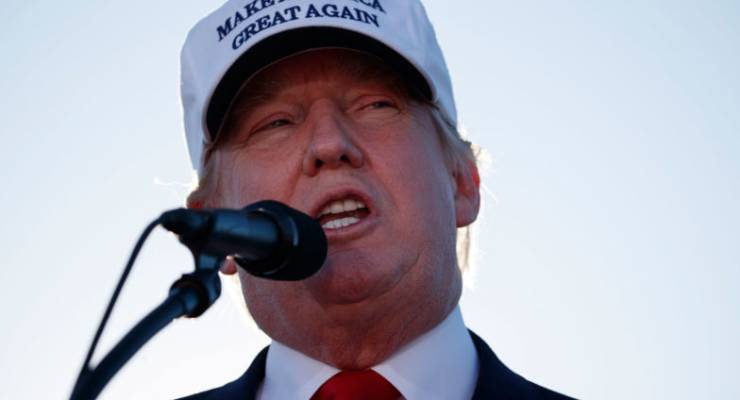
Just two weeks out from the US elections, some more populist observers still seem to believe that Donald Trump can do a “Brexit” — that is, produce a surprise result — and win the presidency. It is possible that there will be a surprise in the presidential race but, given that the US votes by states for members to an electoral college, it is looking like Trump will need seven or more state-level Brexit results in order to beat his rival, Hillary Clinton.
The hardcore Republican-voting states, in the centre and the south of the United States, currently look like they will continue to support Trump. However, states such as Arizona and Iowa, which Republicans usually win and Trump would need to secure the presidency, are currently balanced between the two candidates, while the generally conservative Ohio is now looking to favour Clinton.
To win, Trump will also need to secure the usually Republican North Carolina and Nevada, and the bellwether states of Florida and Pennsylvania. These states currently favour Clinton. These are, together, the “Brexit” states.
Trump has been trailing in the polls by six or more points for the past two weeks. With electoral momentum moving away from him, in order to win Trump not only needs to stop the slide but to close the gap. Each day that passes reduces the chance of that happening. Based on a range of current polls, Trump is now estimated to have around a 10% chance of winning the election.
More likely, Trump is looking like he will receive a thumping in the presidential election. Senior Republicans, who can also read polls fairly astutely, have been busy trying to shore up their base in Congress. The Republicans currently hold 54 of the 100 Senate seats and 234 of the 435 seats in the House of Representatives.
[Rundle: two weeks out from a massacre … or is it?]
On current congressional polling, the Senate numbers are likely to be reversed, giving the Democrats 55 seats. The situation in the House of Representatives is also tending to favour the Democrats, with around 19 seats looking to go to the Democrats. However, this area tends to rely on local politics as well as larger party-political swings, so the potential variations in this area are relatively wide and could leave the House very finely balanced.
With so many Republican positions in the firing line and the real possibility of a Democratic presidency, Senate and House of Representatives, the Republican Party is retreating to what many of its leaders see as safer, more moderate, ground. If Trump represents disenchanted conservative voters (in much the same way that Bernie Sanders represented disenchanted liberal voters), the question the Republicans will have to grapple with in the post-election period is how they stitch their party back together again.
The Democrats face a similar problem, although appear to have papered over the cracks in order to stop Trump from becoming president. The question for them will be, though, after the elections, what sort of accountabilities will be expected of the Democratic Party leadership.
There has been much discussion in recent years about voter disenchantment across the developed world. This has reflected a growing sense of alienation by many ordinary people from the “political class”, and a retreat to cheap populism in an era of increasing complexity.
As the US elections are demonstrating, there is increasingly a clear geographic as well as educational and wealth divide in voting patterns. This was also evident in the Brexit vote, in French elections and, increasingly, in Australia.
What mainstream political parties are now looking at and, in the US, will devote considerable time to after November 8, is how to bridge this divide. In part, the answer appears to be in revisiting the social contract, in which the gap between education, wealth and opportunity and its lack was not so wide or so increasingly insurmountable.
In part, too, it reflects the need for a wider social conversation, in which political elites listen as well as speak. But this is a time of unprecedented technological change, of greater-than-ever population mobility and a loss of former certainties that underpinned a sense of place in the world. There may, then, even be a deeper need to revisit our understanding of the fundamental elements required for sustaining what we have come to understand as “democracy”.








Which do we prefer: political corruption or commercial corruption?
A choice between a crook or a creepy cretin. Not quite so stark in most western democracies but the problem of an entrenched, entirely parasitic and growing chunk of society which has no other function than servicing the elites and misleading the voters.
I think that it was one the 19thC US robber barons of the railway boom, Jay Gould, who said “I can easily hire enough of the working class to protect me from the rest”.
The ‘choice’ is the Evil of Two Lessers.